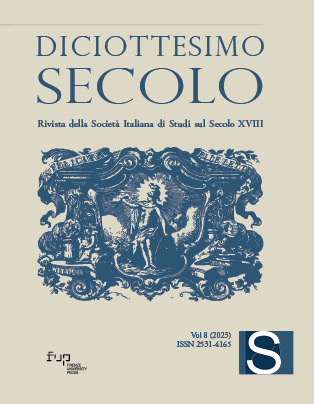Published 2023-07-01
Keywords
- contagionist theory,
- liberties,
- periodical press,
- «The Free-Thinker»,
- atheism
How to Cite
Copyright (c) 2023 Claire Boulard -Jouslin

This work is licensed under a Creative Commons Attribution 4.0 International License.
Abstract
In June 1720, a plague epidemic broke out in Marseille, killed half its population and, spread to Provence and Languedoc, thus arousing fears of contagion in England, where the memory of the Great Plague of London in 1664/5 was still vivid. While the English newspapers published short news on the mortality and measures taken by the French authorities, a leisure periodical, «The Free-Thinker», a bi-weekly essay paper published in London and circulated throughout the country between March 1718 and July 1721, chose to devote a series of twenty-five papers to the contagion between December 1720 and June 1721. The present study analyses the rational and liberal discourse of this periodical. It will show that at a time when the plague was the subject of many providentialist sermons, «The Free-Thinker» offered its readers an exclusively rational discourse based on the popularisation of medical, statistical and historical knowledge about the plague. «The Free-Thinker»’s arguments also echoed both the essentially preventive approach of the English government and medical polemics concerning two contagionist conceptions of the disease. Finally, although the periodical justified its series by using the argument of public good and put forward public health policies, its aim was primarily to counter a radical contagionist discourse which was considered harmful to the economic and political freedoms of its readers.

